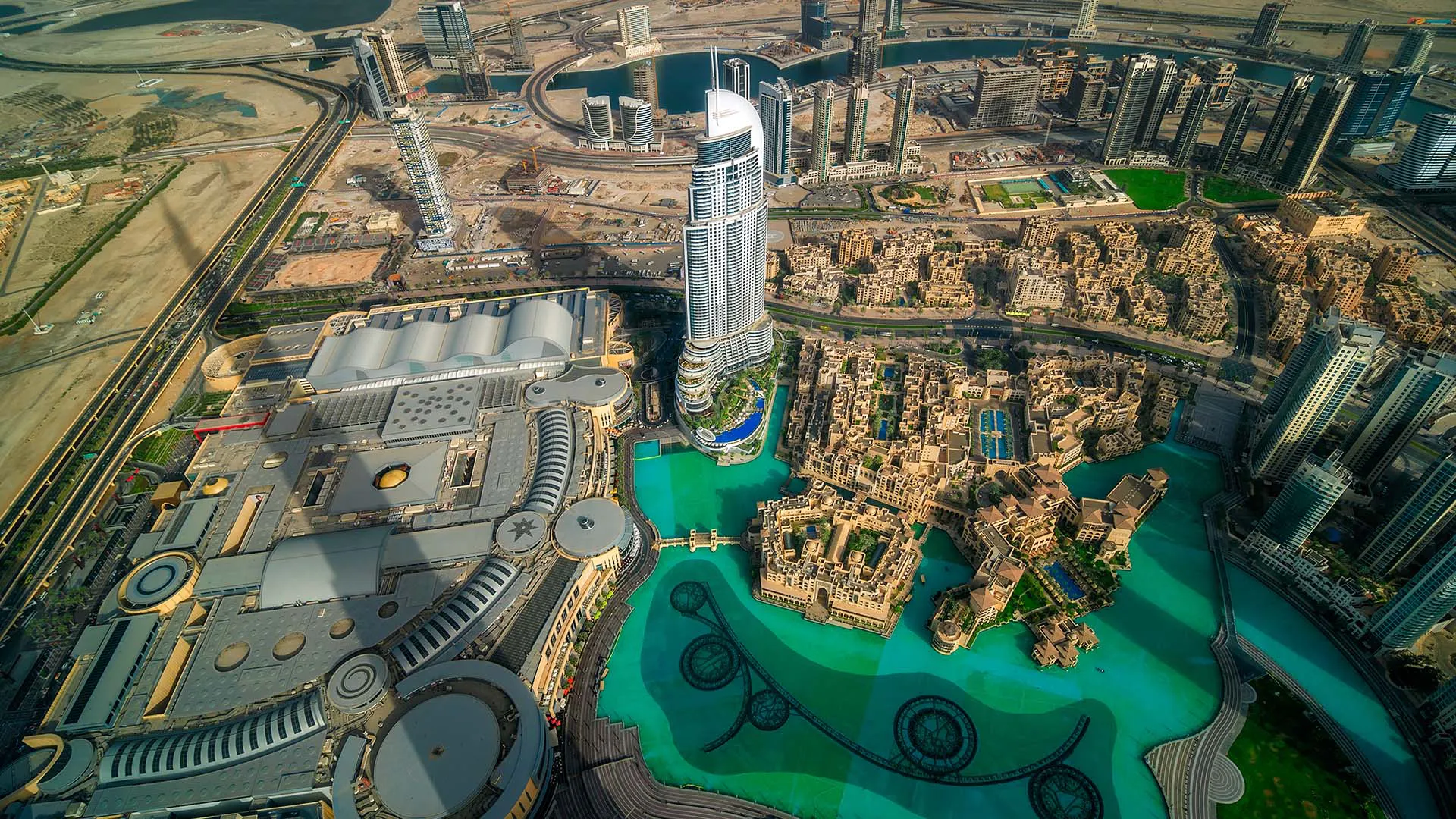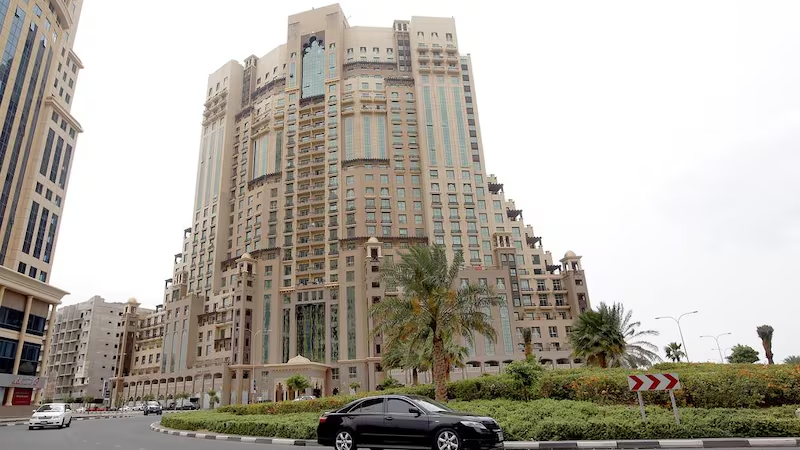Buying Land in Dubai for Expats: Legal Guide, Top Areas & Tips (2025)

How to Buy Land in Dubai as an Expat: A Complete 2024 Guide
Picture this: endless blue skies, cutting-edge infrastructure, tax-free earnings, and now, a chance to call a piece of this futuristic oasis your own. For many expats, buying land in Dubai isn't just a financial move—it's a life goal. Whether you're planning to build your dream home from scratch or invest in raw land for future development, Dubai has opened its arms to international buyers. But while the opportunities are exciting, the process can seem complex—especially with evolving rules, designated zones, and financing nuances. That’s where we step in. In this all-in-one guide by Homeland Realty Real Estate, we’ll unpack the entire journey—from legalities and benefits to cost breakdowns and location insights—so you can navigate Dubai’s land market with total confidence.
Benefits of Buying Land in Dubai
Owning land in Dubai brings a unique set of advantages that go beyond the obvious financial gains. Here’s why more expats are entering the land market:
- High Return on Investment: Land is a finite asset. As Dubai’s population grows and infrastructure expands, undeveloped plots in strategic locations often appreciate faster than built properties. Whether you’re buying for resale or future construction, the long-term financial upside is strong.
- Tailored Living or Development Projects: Unlike buying a ready-built property, owning land gives you total freedom. Want a rooftop garden? Underground parking? A modern villa or a boutique hotel? It’s your call. This flexibility is especially appealing to investors and custom homebuilders.
- Residency Pathways: While land ownership alone doesn’t grant residency, building a property that surpasses the investment threshold can make you eligible for long-term UAE visas, including the Golden Visa.
- Diversification: If you’re a global investor, adding Dubai land to your portfolio offers diversification in a tax-free, dollar-pegged economy that’s globally connected and pro-business.
- Regulated Market: Dubai’s real estate sector is closely overseen by the Dubai Land Department (DLD) and the Real Estate Regulatory Authority (RERA), ensuring transparency and investor protection at every step.
Can Foreigners Buy Land in Dubai?
Yes—they absolutely can, but not just anywhere. The Dubai government has designated specific freehold and leasehold zones where foreigners are allowed to buy land. This move, part of a long-term vision to attract global investment, has made Dubai one of the most accessible markets for foreign property ownership in the Middle East.
- Freehold Zones: These offer complete ownership of the land and property, allowing you to sell, lease, or inherit it freely. Popular areas include Palm Jumeirah, Downtown Dubai, Dubai Hills Estate, and Dubai Marina.
- Leasehold Zones: In these areas, you can lease land for up to 99 years, after which the rights revert to the original Emirati owner unless renewed. These are typically found in older parts of the city.
Understanding these zones is essential before making a purchase. Your real estate agent can help identify suitable plots based on your goals.
Read more: Top 10 Freehold Areas in Dubai for Foreign Investors

Land Ownership Laws & Legal Requirements in Dubai for Expats
Dubai’s real estate laws are among the most investor-friendly in the region—but that doesn’t mean you should go in blind. Here’s what you’ll need to keep in mind as an expat buyer:
- You must buy within designated zones: As mentioned earlier, not every area is open to foreigners. Stick to freehold or leasehold areas legally approved for non-citizens.
- Documentation Required: You'll need a valid passport, and in some cases, a UAE residency visa or Emirates ID. If you're buying through a company or holding structure, additional documentation will be required.
- Title Deed Registration: Every transaction must be registered with the Dubai Land Department to receive your official Title Deed (Oqood).
- Construction Rules: Once you buy land, you must often follow guidelines set by the master developer, including plot usage, height restrictions, and construction deadlines.
Financing Options for Buying Land in Dubai
If you’re not planning to buy with cash (which many expats still do), you’ll want to explore financing. Dubai has become more flexible in this area over the years, although financing land is still slightly different than buying a villa or apartment.
- Land-Specific Loans: Several UAE banks offer land purchase loans, typically requiring a 30-40% down payment. Interest rates may be higher, and loan terms are shorter compared to residential mortgages.
- Developer Financing: If you’re buying land from a major developer like Nakheel, they may offer payment plans—particularly for off-plan plots. These plans can span 1 to 5 years, depending on the development.
- Private Financing and Partnerships: In some cases, especially for commercial plots, private investors or business partners may co-finance the purchase with you.
Tip: Work with a qualified mortgage advisor to compare offers and understand your eligibility.
Read more: Top Dubai Mortgage Offers for Non-UAE Residents
Step-by-Step Process of Buying Land in Dubai
The process is streamlined but still requires attention to detail. Here’s how to do it right:
Step 1: Define Your Purpose
Are you buying land to build a home, flip it, or hold it as an investment? Your purpose will determine location, zoning requirements, and budget.
Step 2: Choose the Right Area
Research neighborhoods, check infrastructure plans, and compare prices. Use portals like DLD’s Dubai REST App, and consult your agent at Homeland Realty.
Step 3: Hire a Trusted Real Estate Agent
This is not the time for guesswork. Work with licensed agents who understand land transactions, especially in Dubai’s evolving legal landscape.
Step 4: Make an Offer & Sign MOU
Once you agree on price and terms, both parties sign a Memorandum of Understanding (Form F). A 10% deposit is usually paid at this stage.
Step 5: Secure Financing (if needed)
This includes bank approval, down payment arrangements, and finalizing payment schedules.
Step 6: Apply for NOC from Developer
If buying within a master community, a No Objection Certificate ensures there are no dues or violations linked to the land.
Step 7: Final Transfer at Dubai Land Department
You’ll receive your official Title Deed, and the land becomes legally yours.

Top Locations to Buy Land in Dubai
Choosing where to buy is just as important as what to buy. These areas are top picks for land investment and development:
Dubai Hills Estate
An elegant, master-planned community with lush landscapes, a golf course, and seamless city access. Ideal for family villas or luxury mansions.
Palm Jumeirah
The epitome of prestige, with limited villa plots offering direct beach access and iconic skyline views.
Al Barari
An eco-conscious community filled with greenery, wellness centers, and custom villa plots—perfect for serene luxury living.
Dubai South
Poised to be the next big thing. Near Expo City and Al Maktoum Airport, this area is perfect for budget-conscious buyers looking for long-term appreciation.
Jumeirah Bay Island
Ultra-exclusive plots on a manmade island connected by bridge to Jumeirah. Expect sea views, yacht berths, and privacy.
Freehold vs Leasehold Land in Dubai
Understanding the difference is crucial before buying:
- Freehold: Full ownership with rights to sell, rent, or pass on to heirs. Most new communities allow freehold purchases for foreigners.
- Leasehold: You own the right to use the land for a set term (up to 99 years), but not the land itself. Best suited for short-to-medium-term investment.
Read more: Freehold vs. Leasehold in Dubai: The Ultimate Guide for Investors
Tips for First-Time Land Buyers in Dubai
- Do a Title Search: Always confirm there are no disputes or encumbrances on the land.
- Understand Community Fees: Master developers charge yearly fees for infrastructure upkeep.
- Hire a Construction Consultant: If you plan to build, hire an expert early to understand costs and timelines.
- Avoid Off-Plan Without Research: Not all off-plan land sales are created equal—study the developer’s track record.
Conclusion
Buying land in Dubai is more than a transaction—it’s a doorway to building your future in one of the world’s most dynamic cities. Whether you’re after luxury beachfront land, suburban serenity, or long-term appreciation, Dubai offers it all. But success depends on informed decisions, clear legal navigation, and the right professional guidance.
Homeland Realty Real Estate is here to guide you every step of the way—from land selection and price negotiation to legal processing and construction referrals.
Frequently Asked Questions
Can foreigners buy land in Dubai without UAE residency?
Yes. Residency is not required to purchase land, although having one can ease banking and utility registrations.
What is the transfer fee for land purchases?
The Dubai Land Department charges a 4% transfer fee on the purchase price.
How long does the buying process take?
It typically takes 2–6 weeks from signing the MOU to transfer and receiving the Title Deed.
Can I build any type of property on my land?
You must follow community-specific guidelines and zoning regulations. Some plots are residential-only, while others allow mixed-use.
Read more:
Get In Touch
Latest Blogs

Gen Z, longer stays: Here's what drives Dubai’s short-term rental demand into 2026

UAE channels over Dh33 billion in funding to boost tourism, jobs

UAE home ownership now affordable for residents earning Dh20,000 a month

UAE tourism records robust growth on back of reforms and innovation

